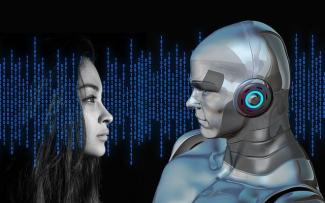Is AI and technology a threat to traditional lawyers?
Judith Thompson 18-07-2023
From the first iPhone in 2007, to burgeoning Artificial Intelligence (AI), technology is becoming ever prevalent in our daily lives. What does this mean for the future of the legal profession? Could computers ever rival the accuracy and accessibility of the legal system?
Current legal technology
Lawyers must already embrace modern technology in order to provide the best possible service to clients and to remain competitive. Case management systems, template documents, databases, video conferencing and accurate time recording are all important factors in delivering modern legal services.
Being able to use technology and communicate effectively via remote channels is a key skill in managing the daily demands of legal practice, ensuring productive and profitable work habits, keeping up to date with learning and development, and networking.
The role of AI for lawyers
AI is becoming more widely accepted as a helpful support to the legal profession. Phillipa Stubbs (Legal Cheek, 2023) states that AI has been ‘proven to increase productivity and efficiency within the legal industry’. She describes AI applications which can generate documents and bundles, carry out legal analysis, and legal research. She reflects that future developments could include AI developing algorithms for complex contract negotiations.
However, Stubbs also warns that there have been examples of Chat GPT providing false and inaccurate legal information and subsequently providing further false responses when questioned. Therefore, it seems reasonable to conclude that AI applications in the law profession require human intervention and supervision.
Is AI legal advice accurate?
The use of technology and AI, is a reality that is being increasingly embraced. Providing reliable and accurate legal guidance through chatbox functions will help vulnerable individuals gain access to otherwise inaccessible legal services. Now that legal aid has all but disappeared, it is understandable why people would increasingly turn to such technology.
There will of course be drawbacks. AI cannot offer support to clients who are anxious and uncertain. It also cannot "think outside the box" and provide creative solutions to complex problems, which cannot be found in legal textbooks. In some cases, AI cannot provide the answers (or the right answers) that clients need.
In many cases, there isn't simply a right or a wrong answer about the law and how a case might proceed. What clients are presented with by a human lawyer is a range of options, and an analysis of the risks and benefits of each of those options.
What does the future hold?
Embracing technology and AI can support lawyers in delivering their services efficiently and effectively. In some cases, it provide access to legal advice for the most vulnerable in our society. However, when people are perhaps driven to seek legal advice it is consequence of stressful and distressing circumstances, they need human skills and interaction to support them and a skilled lawyer to help them interpret the letter of the law.
At Samuels, when you send us a call back request, you will hear from a human being, who has read your email, and not from an automated service.
If you require assistance with any legal matter, contact us today to find out how we can help.
Article credit: Emily Davies

